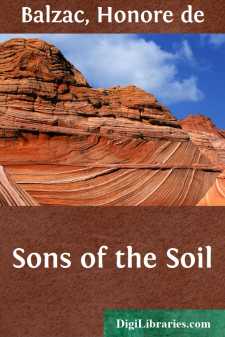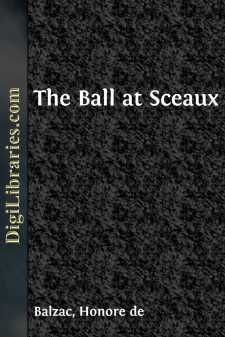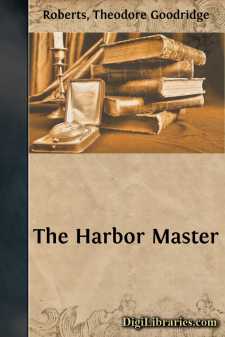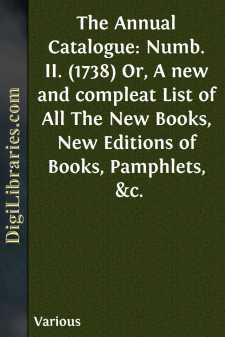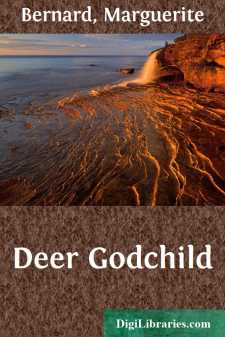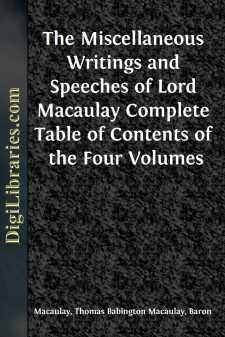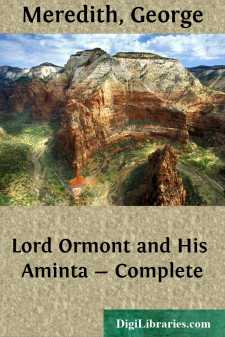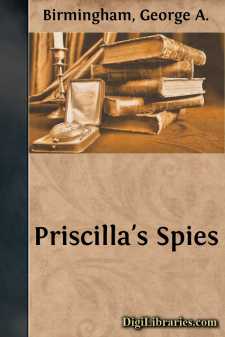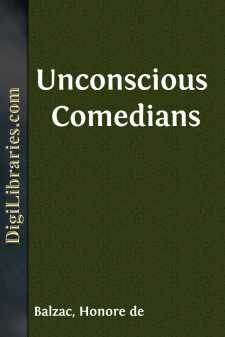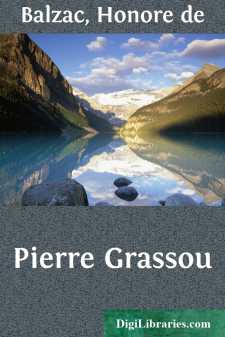Literary Collections
- American 84
- Ancient, Classical & Medieval 14
- Asian 1
- Australian & Oceanian 1
- Canadian 55
- Continental European 121
- English, Irish, Scottish, Welsh 179
- Essays 160
- General 24
- Letters 46
- Middle Eastern 1
Literary Collections Books
Sort by:
by:
Honore de Balzac
CHAPTER I. THE CHATEAU Les Aigues, August 6, 1823. To Monsieur Nathan, My dear Nathan,—You, who provide the public with such delightful dreams through the magic of your imagination, are now to follow me while I make you dream a dream of truth. You shall then tell me whether the present century is likely to bequeath such dreams to the Nathans and the Blondets of the year 1923; you shall estimate the...
more...
by:
Honore de Balzac
THE BALL AT SCEAUX The Comte de Fontaine, head of one of the oldest families in Poitou, had served the Bourbon cause with intelligence and bravery during the war in La Vendee against the Republic. After having escaped all the dangers which threatened the royalist leaders during this stormy period of modern history, he was wont to say in jest, "I am one of the men who gave themselves to be killed on...
more...
CHAPTER I BLACK DENNIS NOLAN At the back of a deep cleft in the formidable cliffs, somewhere between Cape Race to the southward and St. John's to the northward, hides the little hamlet of Chance Along. As to its geographical position, this is sufficient. In the green sea in front of the cleft, and almost closing the mouth of it, lie a number of great boulders, as if the breech in the solid cliff...
more...
by:
Various
THEPREFACE. In the Preface to the First Number of this Catalogue, I mentioned that the Design of it was Principally intended to inform Gentlemen, Ladies, &c. who live remote from London, (at a small Expence), what Books, Pamphlets, Prints, &c. were published in the Preceeding Year; with their exact Prices, and whom printed for. And to make this Annual Catalogue more Compleat and Useful, I have...
more...
INTRODUCTION A young New-Yorker of twelve lately heard an appeal for the Fatherless Children of France, and his heart was touched. He had no money, but he resolved to give his spare time and his utmost energy to support a "kid in France." The French child needed ten cents worth of extra food each day, in order to grow up with strength and courage. The little American godfather earned those...
more...
PREFACE. Lord Macaulay always looked forward to a publication of his miscellaneous works, either by himself or by those who should represent him after his death. And latterly he expressly reserved, whenever the arrangements as to copyright made it necessary, the right of such publication. The collection which is now published comprehends some of the earliest and some of the latest works which he...
more...
by:
George Meredith
CHAPTER I. LOVE AT A SCHOOL A procession of schoolboys having to meet a procession of schoolgirls on the Sunday's dead march, called a walk, round the park, could hardly go by without dropping to a hum in its chatter, and the shot of incurious half-eyes the petticoated creatures—all so much of a swarm unless you stare at them like lanterns. The boys cast glance because it relieved their...
more...
CHAPTER I The summer term ended in a blaze of glory for Frank Mannix. It was a generally accepted opinion in the school that his brilliant catch in the long field—a catch which disposed of the Uppingham captain—had been the decisive factor in winning the most important of matches. And the victory was particularly gratifying, for Haileybury had been defeated for five years previously. There was no...
more...
by:
Honore de Balzac
UNCONSCIOUS COMEDIANS Leon de Lora, our celebrated landscape painter, belongs to one of the noblest families of the Roussillon (Spanish originally) which, although distinguished for the antiquity of its race, has been doomed for a century to the proverbial poverty of hidalgos. Coming, light-footed, to Paris from the department of the Eastern Pyrenees, with the sum of eleven francs in his pocket for all...
more...
by:
Honore de Balzac
PIERRE GRASSOU Whenever you have gone to take a serious look at the exhibition of works of sculpture and painting, such as it has been since the revolution of 1830, have you not been seized by a sense of uneasiness, weariness, sadness, at the sight of those long and over-crowded galleries? Since 1830, the true Salon no longer exists. The Louvre has again been taken by assault,—this time by a populace...
more...


